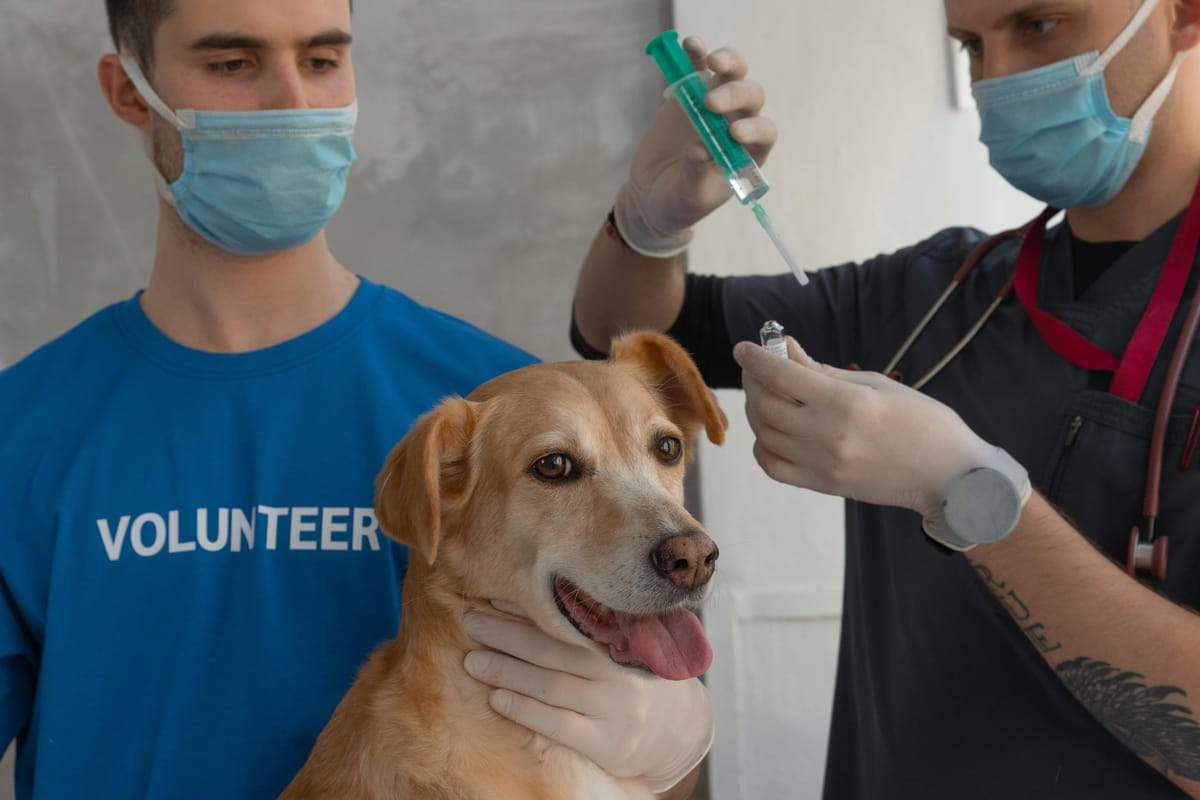Pet Insurance Company Worry About Anti-Vaccination Beliefs Affecting Pet Health

Where anti-vaccination beliefs previously spilled over into public health among humans, Healthy Paws Pet Insurance now worries it may be spilling over into the care of pets. According to some reports, the number of dogs getting vaccinated with key vaccinations, like the rabies vaccine, is falling, and the company fears that the animals may see the risks of preventable diseases rise.
Are Anti-Vaccine Beliefs Impacting Pets?
According to the American Veterinary Medical Association, "vaccines have saved millions of animals from deadly diseases over the past century." Healthy Paws, working alongside their veterinarians, believe that growing anti-vaccine sentiment could be part of the reason, leaving pets increasingly vulnerable to illness.
Why Are Animal Lovers Hesitant to Vaccinate?
There are many various reasons, but the one I hear most often is that people fear immunization can cause immune system diseases or adverse reactions, Jackson says. They believe their pets will develop immunity as they are exposed, so they don't vaccinate. Some do the titer test-a blood test that measures antibodies to determine whether a pet may already be immune-and some are resistant to vaccinations. Although many of these fears mirror those held by human anti-vaccination activists, experts claim the risks associated with not vaccinating far outweigh any perceived benefits.
The Need to Vaccinate Pets
Veterinarians and pet insurance companies stress that vaccination is important to ensure health and prevent disease of the pet. It also limits the cost of expensive treatments. The American Veterinary Medical Association says that vaccinations prompt protective immune responses for fighting future infections. Among the vaccines is the rabies vaccine, which doesn't only protect animals but also serves as an important measure for human health since rabies can easily transmit from animals to humans.
Veterinarian Dr. JoAnna Pendergrass says that, just like human babies, pets get temporary immunity from their mother's milk. Once the passive immunity starts to wane, pets must be vaccinated to develop "active immunity" to diseases. It is important that they don't lose protection during this transition from passive to active immunity, which is why early vaccinations are so crucial.
Benefits of Vaccinating Pets and Households
Giving your pet vaccinations has various benefits:
Prevents Disease: Vaccinations are used to prevent diseases that can be life threatening or need expensive treatment.
Prevents Disease Spread: Vaccinated pets do not spread the diseases to other animals within the house or even outside.
Protects Humans: Vaccinations also prevent the spread of zoonotic disease that gets passed on from pets into humans—particularly important when vulnerable household members, such as children and the elderly, are concerned.
Community Impact of Pets' Vaccination
Vaccinating pets protects not only the individual animal but also contributes to community-wide "herd immunity." According to Dr. Pendergrass, once enough animals are vaccinated, it buffers the community so that even if an animal breaks through a certain exposure, the community will not be as affected by outbreaks from diseases that could have been prevented.
Future Health Risks of Skipping Pet Vaccinations
The choice to forgo vaccinating pets may pose extreme risks in health toward pets and humans. Unvaccinated animals are at high risk of serious diseases, prevented by vaccination if and when appropriate, such as lethal rabies. Core vaccinations in dogs include parvovirus, rabies, distemper, and adenovirus-2. Cats should be immunized with core vaccines for panleukopenia, feline leukemia, herpes virus, calicivirus, and rabies. Location-specific vaccines, like in areas where the dogs will stay to a lot of standing water, help prevent regional health threats such as leptospirosis in dogs.
Although pet owners may be uncertain about the different vaccines, veterinarians and pet insurance providers such as Healthy Paws indicate that these preventive measures are critical to the long-term health and quality of life of a pet. A veterinarian can counsel the owner regarding which are legally required, medically necessary, and, by lifestyle and environment, beneficial for that particular pet.



